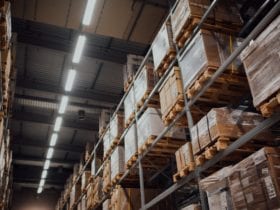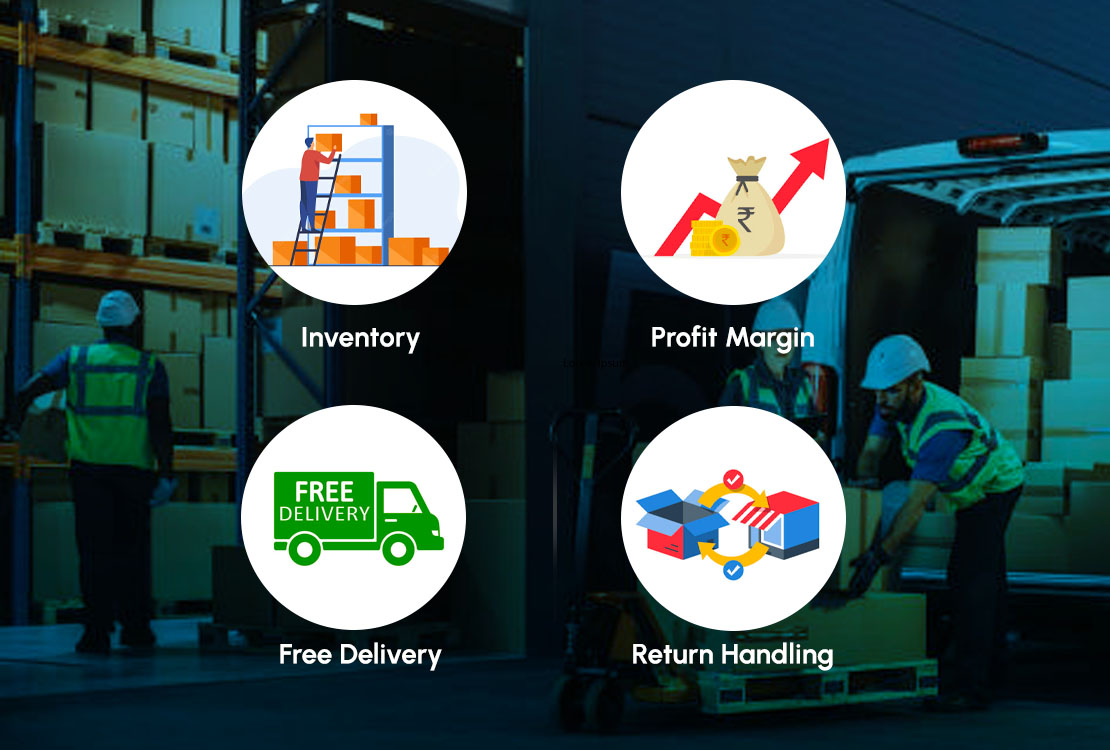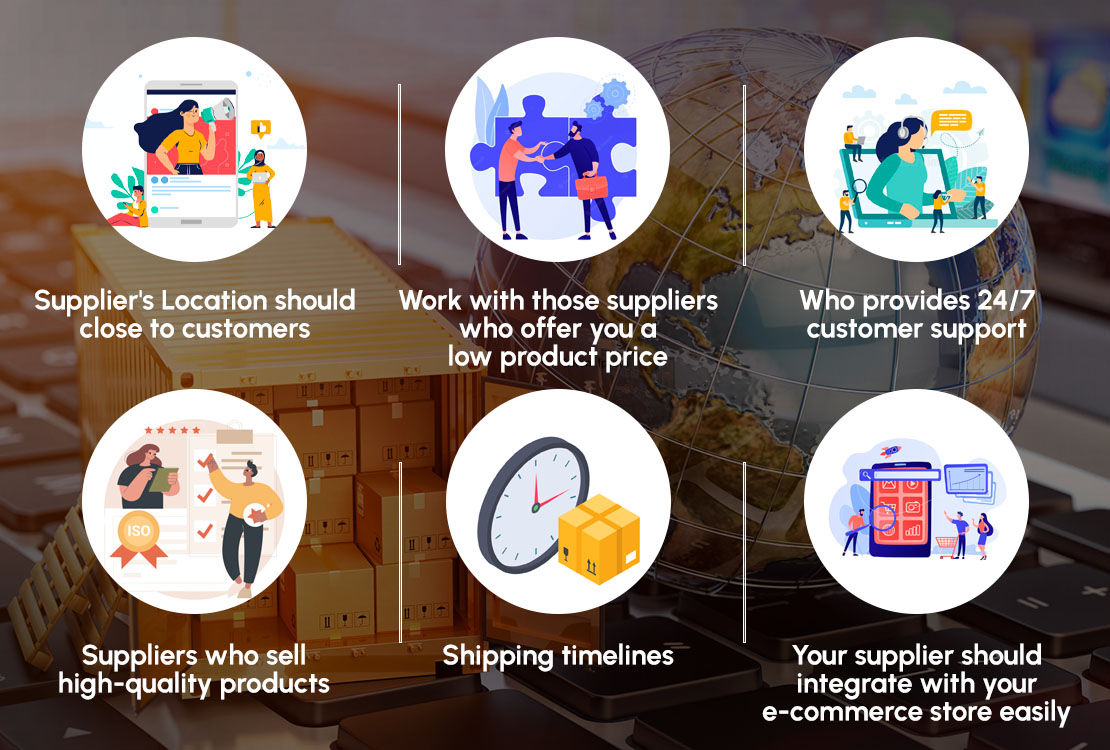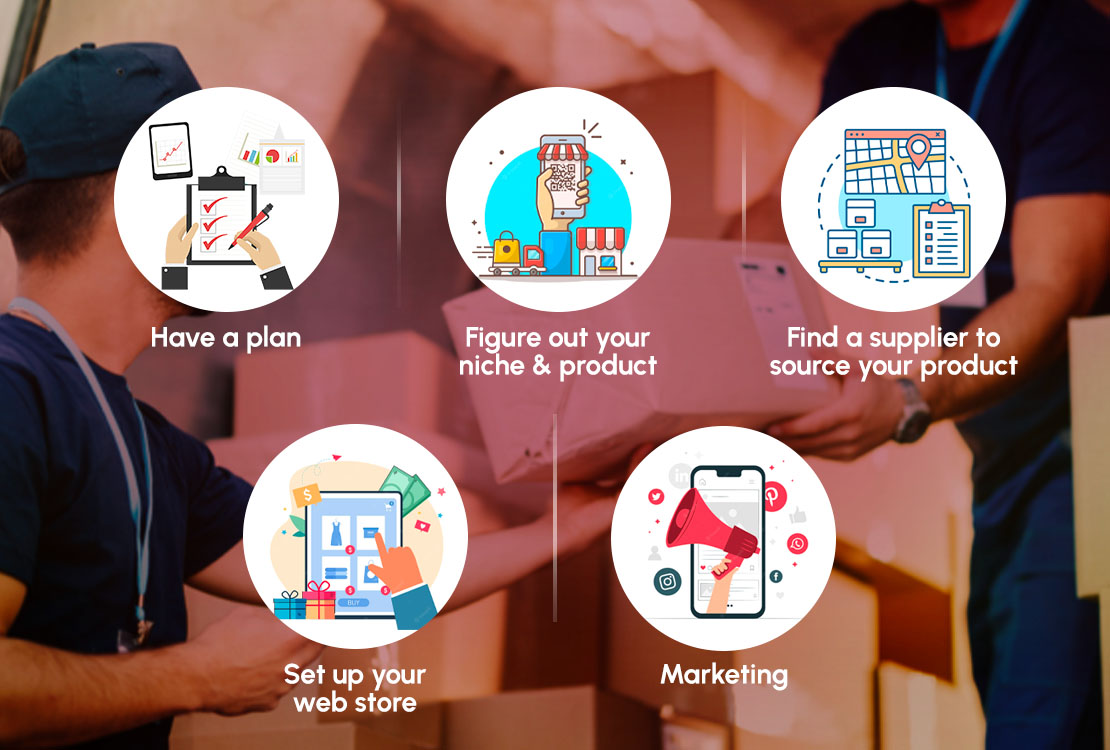Logistics is a method of manufacturing, obtaining, and distributing products from point of origin to the customer’s doorstep. It isn’t a one-step method and has a detailed process to follow. Here is when Logistics Management comes into force. Let us first understand “What is logistics management?” and “The 4 types of logistics management”.
What is Logistics Management?
Logistics Management is a service of an organization that caters to one or more areas of company logistics. It is the implementation of an order fulfillment process from point A to the customer’s doorstep. This provides the best services to customers while fulfilling organization expectations as well. You know that you are managing your logistics operations well if your product has the following ‘Rs’:
- Right Item
- In The Right Quantity
- At The Right Time
- To The Right Place
- At The Right Price
- In The Right Condition
- To The Right Customer


Whether tangible or intangible goods, logistics management caters to it all. One need not worry whether it ts a food item or an automobile.
A Logistician is an expert who looks after the logistics management of an organization. He performs various functions such as analyzing, visualizing and optimizing the logistics of a product delivered from one place yo another.
The various aspects covered under logistics management include:
- Integration of information flow
- Handling Process
- Tools for Management
- Inventory
- Packaging
- Transportation
- Warehousing
- Security
Difference between Logistics and Supply Chain Management (SCM)


Well if we look deeper, logistics management is no different from a supply chain management, rather a subset with minor differences. Logistics Management has been in force since long ago. Back in time, it was an applied process. However, with the evolution of eCommerce, SCM came into force to bridge the gaps and open up to a wider and broader concept.
We define supply chain management as the handling of the production flow from the start to the end. Whether raw materials, goods in-process or finished goods, SCM handles it all.


One complements the other. Logistics management allows smooth delivery and handling of the flow and storage of goods in an organisation. On the the other hand, supply chain management plans, implements and stores goods and services between point A to point B.
Another difference is the approach. Logistics Management caters to customer satisfaction. While on the other hand, SCM looks after the competitive edge for the organization.
SCM performs all activities connected with the flow of goods and services. That is from the point of origin to the customer’s doorstep. Simultaneously, Logistics management just looks after the warehousing, packaging, order fulfillment, and management of stock and supply.
Types of Logistics Management


The process of logistics management falls under the umbrella of supply chain management. There are 4 different types of Logistics Management, each of them catering to a different aspect of the supply process. Let’s have a deeper read about the same:
Supply Management Logistics
This process caters to the planning and coordination of transportation along with the delivery of the stock and supply. These materials are those placed at a particular location during a given time. When we say process, it includes the transport of supplies from one place to another.
The step by step method of the manner in which supply management logistics functions depends purely on the firm. As various companies have their own supply chain model. While some have fewer steps, some tend to be more complex. Hence, the ones that are complex need more supervision and an eye to detail.
Generally, the process of supply management logistics carries out the coordination of storage and those under shipment from point A to be point B. This process needs to be under watch within intervals along with being error-free. As a minute mistake can disrupt the entire supply chain flow.
This process ensures that the flow of materials matches the need. This ensures that the flow of materials matches its requirement for the same.
Material Movement and Distribution
While supply chain logistics focuses on the coordination of supplies in transit, the material movement and distribution caters to the distribution of materials in the desired location.
Material Movement and Distribution – A Type of Logistics Management caters to different processes which are:
- During the stage of loading the materials, unloading them and in transit
- While keeping a track of the supplies
- Keeping a record of the usage of these supplies by whom and in which manner.
The process helps in tracking the supplies moved from a warehouse to the supplier that stacks these materials in its store.
Production Logistics and Management
Production logistics and management are mostly used when the distributed supplies are put together and manufactured into a product. For example, at a construction site, various distribute supplies brought from different locations, form a product, once combined
The above two types of logistics management have their use until the supplies journey to the construction site. Once it has arrived, the function of production logistics and management begins. Here the method of the assembly of supplies to construct the building is catered to.
This process is also used while production at military counterparts, coordination of the area where the production will take place, etc.
Reverse Logistics and Returns
Reverse logistics or return to order caters to the products that need to be brought back to the warehouse. This type of logistics management mainly focuses on the movement of material that is needed to assemble for returns.
When a customer has left the shipping agent unanswered or places for a return due to unsatisfactory experience with the product, reverse logistics play an important role. It manages the different stages that include a thorough check through of the product, restoration and stocking them back into the inventory. Reverse logistics and return ensure that the product is fit to be sold to another customer.
Another example is that of a construction site, where the role of reverse logistics comes to play when there are any unused of surfeit materials. These materials are stored and stocked into the supply inventory. On the other hand, if the logistics activity is used for military purposes, reverse logistics plays a role to bring back the equipment that was used at the location of the military exercise.
How To Ensure A Smart Logistics Management


By now, one may have understood that the functioning of logistics management includes strategic planning. However more the planning better the management process. Every stage of logistics, i.e. the distribution and returns needs to seamless. This is to ensure efficient management that will, in turn, increase the flow of revenue coming in.
However, the more complex the type of management is carried on, the more challenging and prone to error the process can be. Hence, consider the below ways on how you can ensure a smart logistics management:
Pen Down A Plan
Strategic planning is needed for any operation to function. A structure helps to make better decisions. Once the plan is ready, the execution is what follows. While there can be certain mishaps and errors, dealing with altering the planned structure can be done. However, those on spot changes won’t cause delays as it won’t hamper the planned activity. The seamless flow of supply is what is needed and hence it needs a lot of time and effort through efficient planning.
Always Have A Backup Plan
Now that a strategic plan is in place, consider mapping another plan. Unwanted circumstances and mishaps are a possibility and hence a plan B comes to rescue. Without a backup plan, you are sure to face delays in your logistics activity.
Smart managers with a certain experience generally pen down a Plan B. They are ones who are ready for any kind of occurrence. However, having said this, a backup plan must be considered when the original plan can no more function and it needs a switch.
Smart Managers Function Through Experience
The entire process of logistics management is complex and hence requires experience. As a manager, his ability to work with different departments and processes is possible only with his experience and knowledge in the field interest. For this, interpersonal skills play a role. Additionally, a wide range of industry contacts is a definite need for smooth communication. A major benefit of these contacts help during the times of sudden mishaps and to find various alternatives.
Shift To Automated Way of Management
In today’s faced-paced world, the shift from manual to automated is the pathway forward. Not only does speed play an important role, but also error-free. The automated software and various other machines bring in an efficient functioning with guaranteed quick delivery. Lastly, automation is used in almost every area of management, from inventory to warehousing, packaging to logistics, and shipping. eCommerce website functions on automated tools and hence logistics should follow the same operational technique.
Now that you have understood the 4 different types of logistics management, go ahead and apply it
Dash101 – Your Logistics Management Partner


Dash101 is not just a shipping partner, but a business partner. With a well-organized network and years of experience, it can make a delivery process efficient and smooth. Dash101 ticks each of these boxes right.
Operating in over 26,000 pin codes across India with over 30,000 shipments per day, Dash101 understands that expansion is an essential element when it comes to developing a brand. Local businesses often miss out on expansion opportunities, owing to the unavailability of suitable and affordable shipping solutions. While most shipping services operate well within a city or within a specified geographic area, it is hard to expand territory without substantially increasing the shipping costs.
With Dash101, you can now reach customers across India – this will not only help boost sales but also strengthen brand recognition. Additionally, we offer convenient bulk shipping facilities for fulfilling your big consignments at Dash101’s trademark cost-effective rates, making it an effective eCommerce solution in India.
Return to Origin or RTO is a simple concept of shipping but a major problem for businesses. When you receive a return order due to an error in the buyer’s address or inability to contact the buyer to manage to deliver, it leads to loss of resources
The platform’s smart logistics technology and active Interactive Voice Response (IVR) calls to buyers enable timely deliveries. Consequently, you must pay the shipper in advance, and so the customer must pay you. Dash101, however, offers COD to all its partners. This will allow you to build better relationships with your customers and in the long-run, have a direct impact on customer loyalty
. Dash101 also offers integration with platforms like Shopify to simplify order fulfillment.







Leave a Review